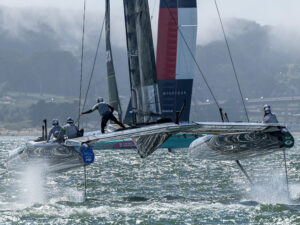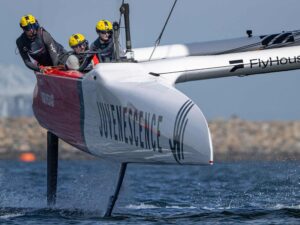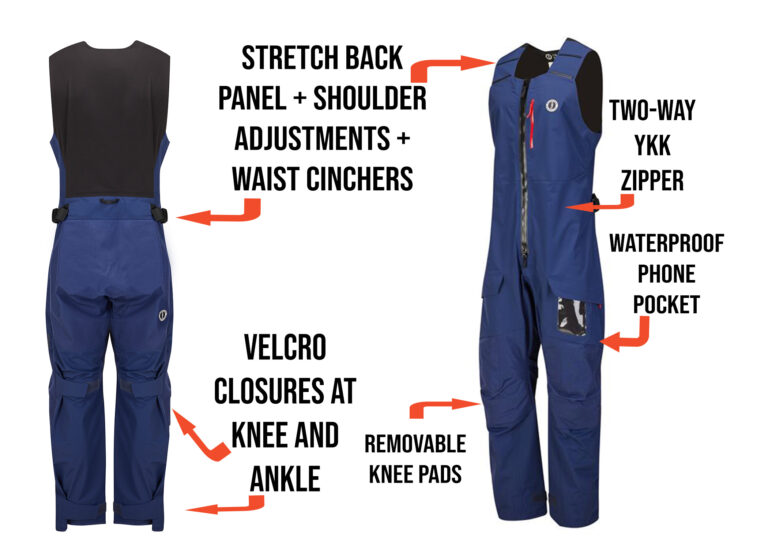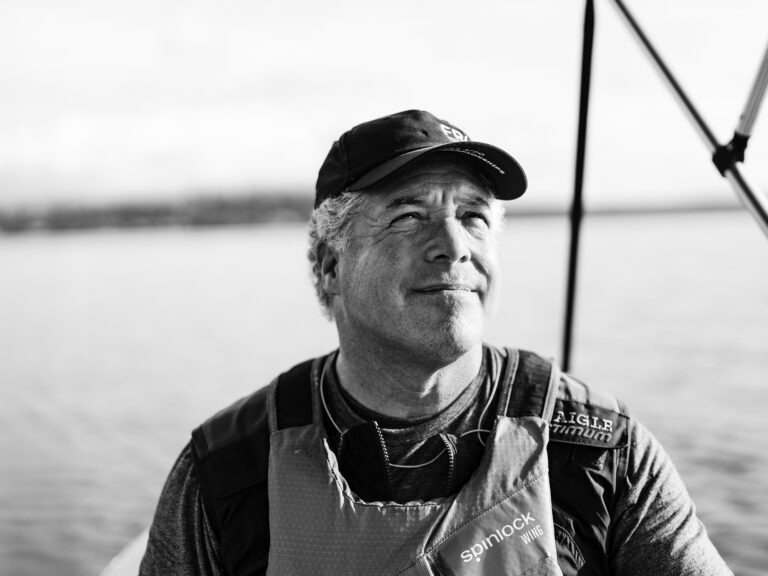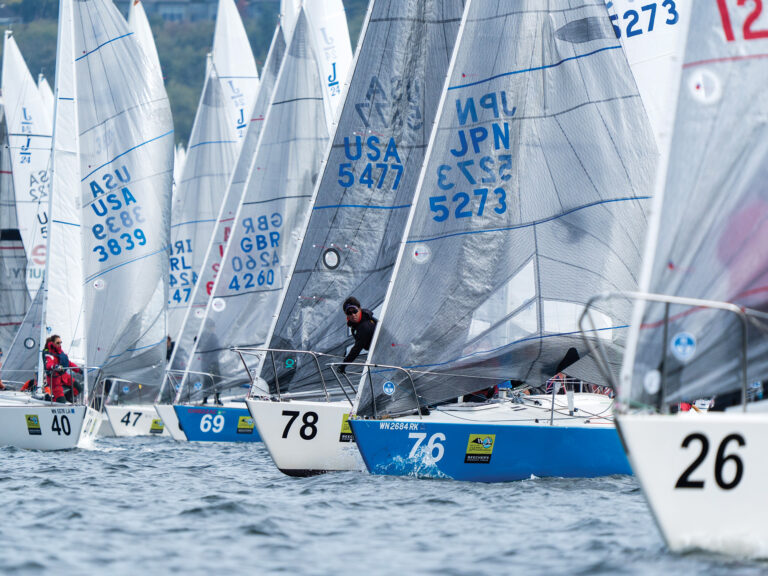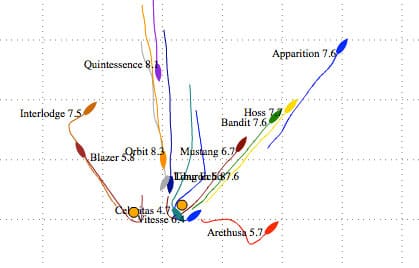
110718_LeewardMark
**As we started the final day of the Swan 42 Nationals, there seemed to be little to gain for Team Arethusa and a lot to lose. **We were tied for second, 18 points behind Ken Colburn’s crew on Apparition—who were sailing phenomenally well—and with a raft of boats in close proximity.
It was a remarkable day of sailing, three grueling races in a chamber-of-commerce southerly that touched 23 on occasion and never dropped below 16.
We ended the day tied on points for first—a comeback that included victories in the final two races—but lost the tiebreaker to Apparition, which had won five races over the first three days of the regatta. If you can’t win the regatta, winning two races on the final day and losing the tiebreaker for first is perhaps the second-best way to close it out.
But the bottom line is we came up one point short. And coming up one point shy always leaves you wondering about the points you left on the table. I know I was personally responsible for at least four.
During the second race on Day 1, which was sailed inside Narragansett Bay in a stubbornly northerly that was supposed to die, but never did until after the last race of the day, we came into the leeward mark in second, but with the Texas-based team on Hoss converging on our port side and with a potential inside overlap and starboard advantage. We pushed the takedown inside the three boatlength circle and as we went to pull the sail around to the windward side the jib came with it, fouling the kite, and wrapping the head of the jib around the headstay. We turned upwind with the spinnaker halfway up, and the top of the jib wrapped. It was an ugly mess, and the only solution was to bear way off and pull the jib back around. A second or a third quickly turned into an seventh (which was, in fact, fairly remarkable considering how bad it looked moments after rounding the mark).
The one crucial error was not keeping the jib sheeted it as we went for the douse. And, of course, that was my responsibility.
There are many specific lessons to learn:
In moderate to heavy air, before going for a spinnaker douse, **always make sure the jib is sheeted in enough to ensure it won’t foul the kite on the douse and the top of the sail won’t wrap **around the headstay when the skipper turns down for the drop. Over sheeting is better than undersheeting.
If for some reason the top of the jib (particularly the top batten) gets wrapped around the headstay, don’t allow the boat to turn up until the twist is cleared. The only way to clear that twist, without breaking the battens, is by sailing downwind. It’s usually far more efficient to sail a length or two past the mark, clear the jib, and then head upwind as opposed to trying to head upwind, realizing the jib isn’t going to clear itself, and then bearing.
AdvertisementAlways manage the risk verses reward of any maneuver. Unless there’s a compelling reason to gamble on a high-risk maneuver, take the conservative route, especially early in a regatta. In this case, we would’ve been better off with an early takedown and conceding the inside position to Hoss. They had the more difficult maneuver, a Mexican, and a harder turn. The odds are good that we could’ve rounded behind them, but on a higher line that would’ve allowed us to survive as everyone beat feat for the very favored right corner. At worse, we could’ve taken two clearing tacks and still protected our third, which on Day 1 of a four-day, 19-boat regatta, is plenty good.
But the more general lesson is about the importance of focusing on the little things. In the chaos of that rounding, I lost focus. I was too concerned with whether we had broken the overlap with Hoss (not my job) and didn’t focus enough on the task at hand. In those situations, it’s even more crucial that everyone is tuned in to their specific responsibilities.
Once we committed to trying to break the overlap with Hoss, we knew the takedown would be a fire drill. It was a doable maneuver, albeit it one with little margin for error. Had we pulled it off, we would’ve left ourselves in good shape for a second place in the race, and as it turns out, a win in the regatta.
Of course there are plenty of other places during the 11-race series where we could’ve picked up that single point, but having one of them be something as routine as sheeting in the jib before a douse will gnaw at me for quite a while.

